Russia protests: Opposition leader Navalny and hundreds of others held
- Published
Steve Rosenberg: "The police have been telling the crowd this is an illegal meeting"
Russia's main opposition leader, Alexei Navalny, has been arrested at an anti-corruption protest he organised in the capital, Moscow.
Thousands of people joined rallies nationwide, calling for the resignation of Prime Minister Dmitry Medvedev over corruption allegations.
At least 500 other protesters were detained in the capital and across the country.
Most of the marches were organised without official permission.
TV pictures showed demonstrators chanting "Down with [Russian President Vladimir] Putin!", "Russia without Putin!" and "Putin is a thief!".
Correspondents say the marches appear to be the biggest since anti-government demonstrations in 2011 and 2012.
Alexei Navalny was detained as he arrived to join the rally in central Moscow. Protesters then tried to prevent a police van from taking him away.
In a tweet after his detention, he urged fellow protesters to continue with the demonstration.
"Guys, I'm fine. No need to fight to get me out. Walk along Tverskaya [Moscow main street]. Our topic of the day is the fight against corruption," he said (in Russian), external.
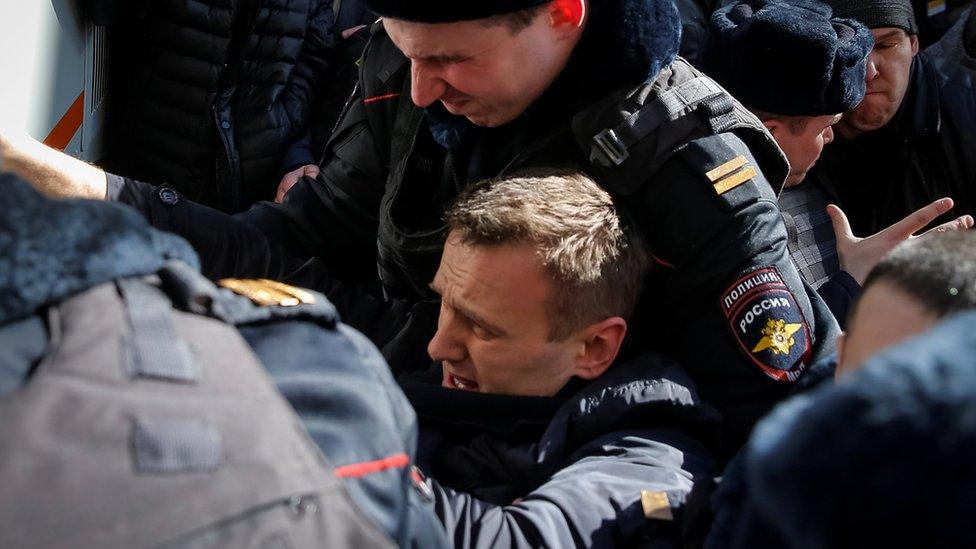
Alexei Navalny was taken by police officers during a rally in central Moscow
He later said police stormed the office of his foundation and detained its staff, who were broadcasting the protests live.
Demonstrations were also held in Saint Petersburg, Vladivostok, Novosibirsk, Tomsk and several other cities, where arrests had also been reported.
The US has condemned "the detention of hundreds of peaceful protesters throughout Russia".
"Detaining peaceful protesters, human rights observers, and journalists is an affront to core democratic values," acting State Department spokesman Mark Toner said.
He added that the US was "troubled" by Mr Navalny's arrest.

Why the protests?
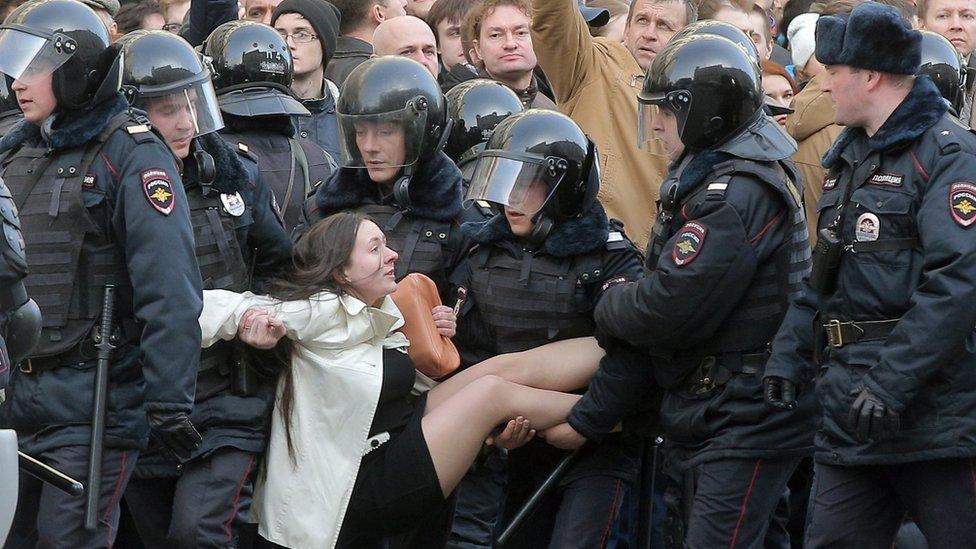
The largest protests were in Moscow
Alexei Navalny called for the nationwide protests after he published reports claiming that Mr Medvedev controlled mansions, yachts and vineyards - a fortune that far outstripped his official salary.
Mr Medvedev's spokeswoman called the allegations "propagandistic attacks", but the prime minister himself has not commented on the claims.
The reports included the accusation that Mr Medvedev had a special house for a duck on one of his properties - and on Sunday, some demonstrators held up images of yellow rubber ducks.
Others showed up with their faces painted green, a reference to a recent attack in which Mr Navalny was hit with green liquid.

In Moscow, protesters filled Pushkin square and some climbed the monument to poet Alexander Pushkin shouting "impeachment". Turnout was estimated to be between 7,000 and 8,000, according to police.
The police said 500 protesters had been arrested in the capital alone, but a rights group, OVD Info, put that number at more than 800.
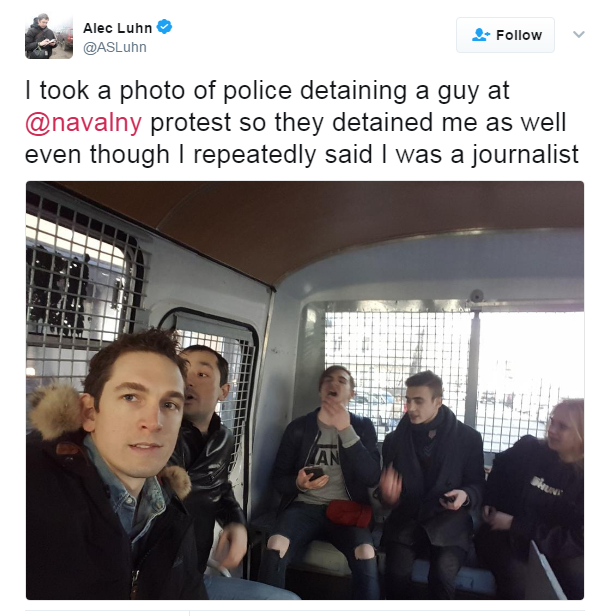
Alec Luhn, a journalist with UK newspaper The Guardian, was among those detained. He was released five hours later.
The Kremlin has not commented on the demonstrations. It had said on Friday that plans for an unauthorised protest in central Moscow were an illegal provocation.
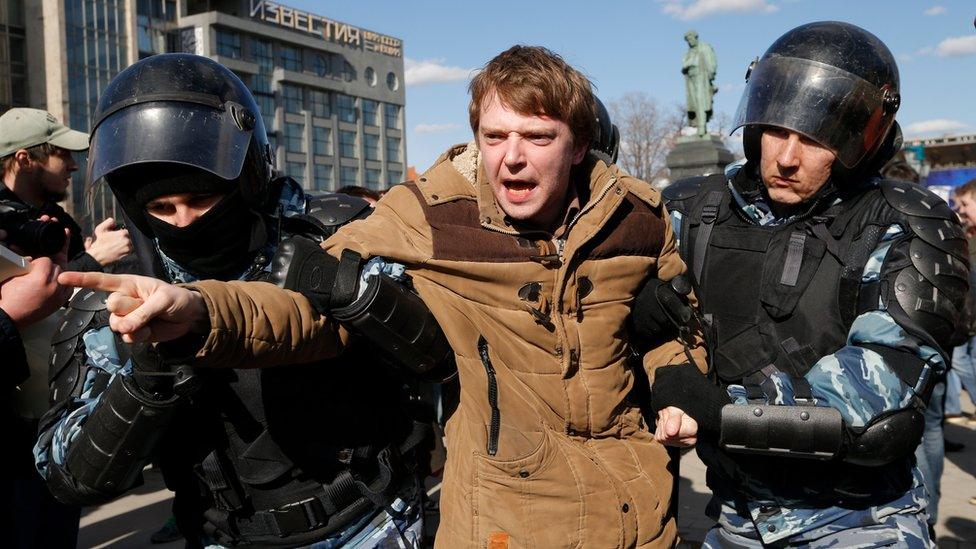
Hundreds of protesters have been arrested in the capital
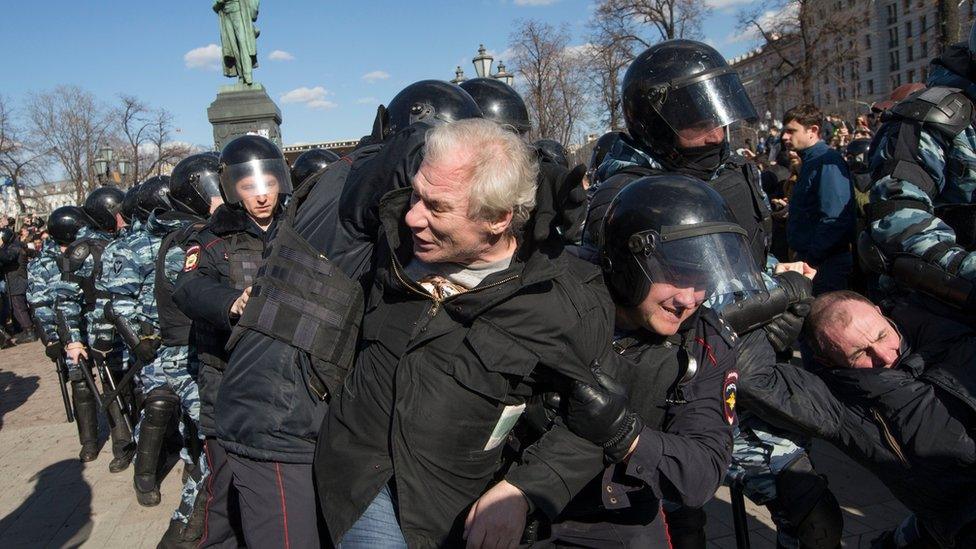
Police were out in large numbers in many Russian cities
Local media reports suggested the authorities pressured students not to attend. In some cities, exams were scheduled on Sunday.
Alexei Navalny announced his intention to run for president in 2018 against Vladimir Putin. But he is barred from doing so after being found guilty in a case he said was politicised.
He said on his website that protests were planned in 99 cities, but that in 72 of them authorities did not give permission.


- Published16 February 2024
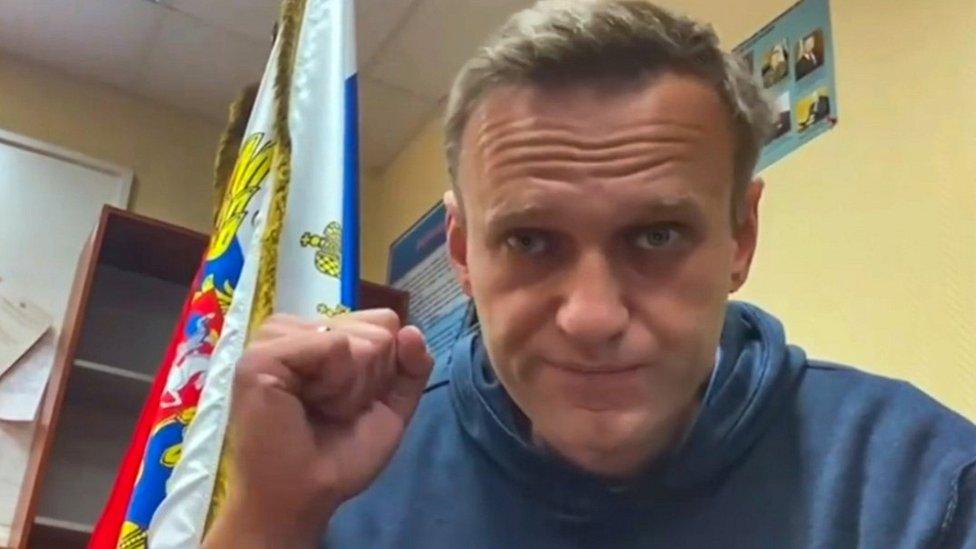
- Published9 February 2017
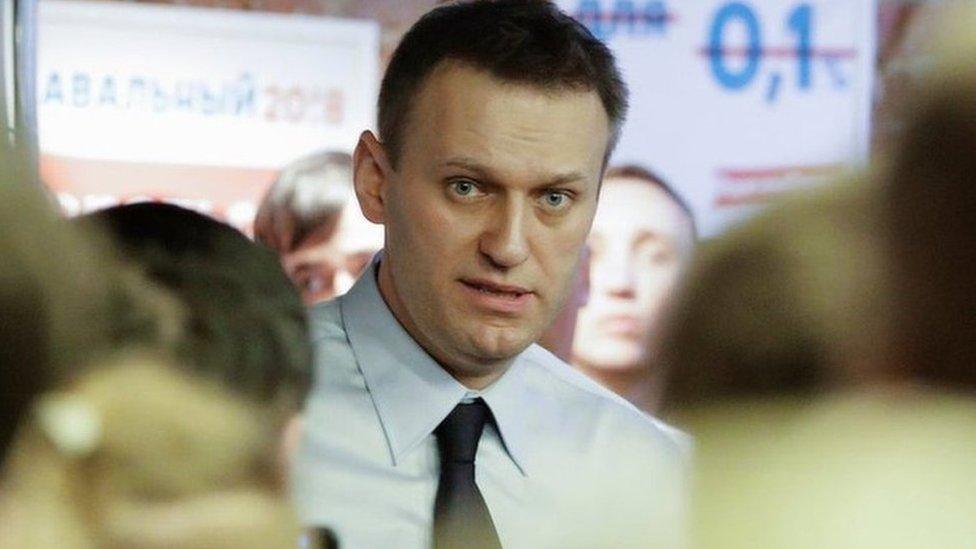
- Published8 February 2017

- Published2 February 2017
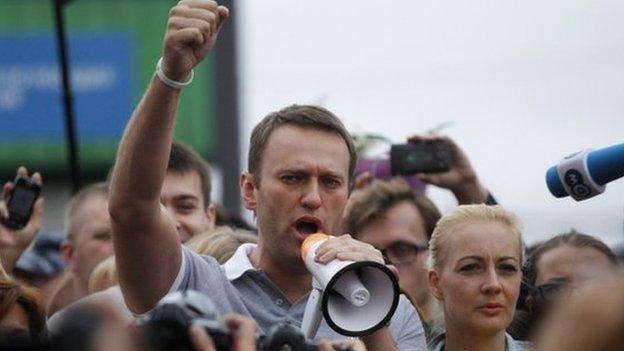
- Published25 March 2024
